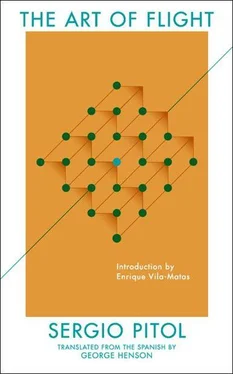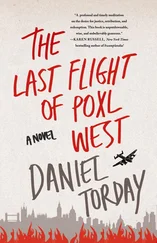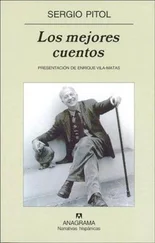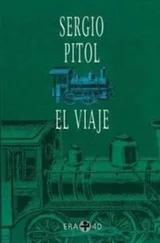The writing of my first novel, in the late sixties, coincided with a universal attempt to discredit narrative, a hatred of storytelling. Expressing even a moderate interest in Dickens, to cite just one example, could be considered a flagrant provocation or a confession of ignorance or provincialism. It was a time of never-ending innovation. Literature, cinema, visual arts, theater, all switched languages with extreme frequency. I was excited about many of these innovations, as was almost every member of my generation. We were convinced that a renovation of form was essential in order to return the novel to the state of health it needed. We applauded the innovations, even the most radical ones; but, in my case, the interest for the new never diminished my passion for plot. Without it, life to me has always seemed diminished. Relating real things and undoing, while at the same time enhancing, their reality has been my calling. Whatever doubt I had vanished when I read Galdós. Even if admitting it in Spain is at times scandalous, he has been my true teacher. In his work, as in that of Goya, I discovered that the quotidian and the delirious, the tragic and the grotesque, do not have to be different sides of a coin, rather they are able to be a single fully integrated entity.
But, to return to the storyteller’s ars poetica : Does a single, valid universal principle exist? Golden rules of compulsory application? Does each period add new norms and proscribe others? And yet I still wonder: Is it not true that what is a source of energy for most writers can also be poison for some of them? Are there cases in which a writer, by violating the canon, succeeds in creating masterpieces? Jan Potocki and Jane Austen are contemporaries, but their works seem to illustrate genres that bear no resemblance to each other.
A basic rule, articulated by Gide: “Never take advantage of momentum already gained.” Does each book, then, have to start from zero? We have been witnesses to the fall of authors who for years were our idols, whose audacity we admired without reservation; we came to think that their prose and their vision not only renewed narrative language but also modified our perception of existence until, paralyzed, suspicious of our own faculties, we began to discover through one of their books that their language left us cold, that we had become insensitive to their subjugation, only to be convinced in the end that the faculties that should be regarded with suspicion were not ours but those of the formerly idolized writer, whose prose was devoured by a vegetative language from which he could not or did not know how to defend himself, whether out of slapdashness, self-indulgence, or exhaustion; a language that, like a golem, had begun to mark the rules of the game, only to go its own way, to confuse the author, to convert him into a mere amanuensis. Félix de Azúa recalled once a conversation with Eduardo Chillida in which the sculptor told him that in his youth he suddenly felt surprised by the ease with which he carried out his work until, frightened by his extraordinary skill, he forced himself to sculpt with his left hand so he could again feel the tension of the material. It seems clear to me that Gide’s warning requires no mechanical change of style, devices, themes, or language. It does not require the writer — in each novel, drama, or poem — to transform himself into someone else. That would be foolish, a masquerade. How do we understand, then, the work of Henry James, Ivy Compton-Burnett, Valle-Inclán, Borges, Saramago, and Gombrowicz, for example, for whom excellence depends on the permanent exacerbation of a personal style? In the end, it is really a matter, I imagine, of preventing language from passing, by sheer inertia, from one book to another and becoming a parody of itself, lulled by the energy of the momentum gained. The only influence that one must defend oneself against is one’s own, declares the master of clarity, Bioy Casares. But there, as in everything that has to do with writing, lies the instinct of the writer who will have the last word.
Another definitive rule: never confuse the act of writing with the art of writing. The act of writing does not tend to intensify life, which is the goal of the art of writing. The act of writing will scarcely allow the word to possess more than a single meaning; in the art of writing, a word is by nature polysemantic: it speaks and is silent, reveals and obscures. The act of writing is reliable and predictable, the art of writing never is; it rejoices in delirium, in darkness, in mystery and in disorder, no matter how transparent it may seem. Marguerite Duras: “Writing comes like the wind, it’s naked, it’s made of ink, it’s the thing written, and it passes like nothing else passes in life, nothing more, except life itself.” 11
Writing for me has meant — if I may borrow a phrase from Bakhtin — leaving a personal testimony of the world’s constant mutation.
Xalapa, September 1993

10 Translated by Harold Morland
11 Translated by Mark Polizzotti
1980
19 APRIL (ON A FLIGHT FROM SAN FRANCISCO TO MEXICO)
I keep toying with the idea of writing a novel with a detective plot. Convert the building where I live into a setting with the typical (or topical) characteristics of a microcosm. I’m thinking about a dominant figure, a kind of monster: a very fat woman who lives with a son whom she hides. The tenants: people in some way tied to movements organized thirty or forty years ago by the radical right; also a few intellectuals whom the others see as rabble; and poor tenants, protected by rent control, whom no one ever sees. And a lonely, maniacal, and annoying madman named Pedrito…
26 MAY (IN MEXICO)
I had dinner last night with my niece Elena Buganza. She told me about the thesis she’s preparing for her licenciatura en letras degree. As I listened to her, I had an idea that could be the engine of my novel. Her thesis deals with the work of Bernardo Couto Castillo, a decadent from the late nineteenth century. A young Mexican aristocrat who died at twenty-one, disowned by his family and demonized by the people of good conscience of the time. I imagine, from what little I know, he probably died from an excessive use of absinthe and a violent fit of syphilis. “He enjoyed every vice, even the most perverse,” wrote one of his contemporaries. My niece searched for Couto’s grave and could not find it. She then located some of his relatives and went to see them in search of information about his life and work. When they heard she was researching him and had already gathered some relatively obscure texts, they grew uneasy and closed the door in her face. They probably feared that details that could once again tarnish the family’s reputation would come to light. I am tempted to write a kind of Aspern Papers , except, instead of love letters in my novel it would be secrets that compromised the honor of a poet who has gone down in history as a moral example.
1981
9 MAY
…set everything in the late thirties or early forties. I would like this detective novel to also shed light on certain political issues. Unfortunately, the characters I’m thinking about are too parodic and could only serve as incidental figures (Pedrito Balmorán, for example). A clandestine committee has tried a fellow party member in secret and sentenced him to death. Another man, named Martínez (a blackmailer, among other things), is murdered in jail so he can’t reveal the details of the trial. Someone had paid Martínez to falsely confess that he was the perpetrator. They had promised him all sorts of things: to prepare his getaway, a substantial reward, etc…but I’m missing something… something related to the Central European Jews who began to arrive in Mexico, fleeing Nazism? Some sort of scam? A marriage of convenience undertaken so a woman could leave Europe? Jealousy, betrayals, vendettas, and all that trove of grisly emotions that complement these topics? I can’t figure out how to begin. Everything boils down to the incidental characters, good only for creating atmosphere. The tenants of the building live their life dreaming of a new Cristero uprising and triumph of God on earth…fierce hatreds and rivalries at the core of the rightwing organizations…
Читать дальше













